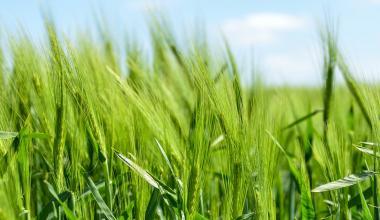The Challenge
Population growth, agricultural productivity and intensified competition for natural resources has led to the overexploitation and unsustainable use of ecosystems. This has made it harder for farmers, foresters and fisherfolk, to improve their livelihoods and escape poverty.
Expensive and short-term solutions proposed by conventional agriculture can worsen both the social and economic problems of smallholder farmers.
Resource-intensive farming systems have pushed many farmers into a poverty trap forcing them to purchase expensive inputs often resulting in a never ending debt cycle. Industrial agriculture has also caused massive deforestation, land degradation and water scarcities, hampering sustainable food and agricultural production and subjecting people to poverty, hunger, and forced migration to urban areas.
There are more than 570 million farms worldwide of which more than 90% are run by an individual or family. They also primarily rely on family labor. Smallholders provide up to 80 percent of the food supply in Asian and sub-Saharan Africa. Family farms generate 40-60% of rural income in developing countries.
Globally, 33% of the world's farmland is highly degraded. Degradation is particularly dominant in dryland areas, affecting the livelihoods of local communities and the long-term health of ecosystems.
Agriculture is a major source of income for rural livelihoods and employs, for example, more than 60% of the population in Sub-Saharan Africa.
A sustainable shift to organic agriculture and agroecology is needed to enhance the livelihoods of farmers and vulnerable groups, in particular women, to withstand the adverse effects of economic (e.g. food price volatility) and environmental (e.g. climate change) factors.
Organic agriculture can help to strengthen livelihoods by:
- Providing the most appropriate way to achieve ecological, agronomic, and socio-economic intensification of family farming and smallholder agriculture by emphasizing participation and bottom-up approaches, which strengthen the solidarity of rural communities.
- Enhancing soil fertility and resilience to food production in light of the uncertainties of climate change.
- Making diversified food available to vulnerable communities and groups, such as women and indigenous peoples, and offering new income sources, e.g. premium price markets, public food procurement programs.
- Reducing food production costs and contributing to higher farm incomes thus motivating farmers to invest in their future e.g. in capacity-building, production, processing.
- Sustaining rural employment as organic agriculture is more labor-intensive than conventional agriculture.
Learn how we work to advocate and create opportunities for smallholder farmers by inclusion into domestic and international organic markets while also facilitating the adaptation to existing and new local and global challenges e.g. inequity, climate change, scarcity, and depletion of natural resources. The UN Decade of Family Farming is an opportunity to do this.

Participatory Guarantee Systems - An Alternative and Complementary Tool to Third-Party Certification

Organic Markets for Development (OM4D)
Read more




